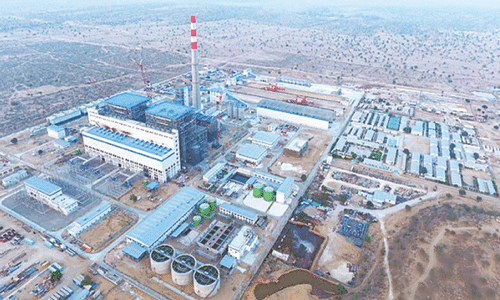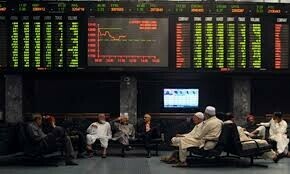 FOR India’s capital markets, 2007 was indeed a remarkable year. The Sensex, the benchmark index on the Bombay Stock Exchange, saw record gains, with both international and domestic investors pouring billions of dollars into the stock markets.
FOR India’s capital markets, 2007 was indeed a remarkable year. The Sensex, the benchmark index on the Bombay Stock Exchange, saw record gains, with both international and domestic investors pouring billions of dollars into the stock markets.
The Sensex gained by nearly 50 per cent during the year, skyrocketing from levels of around 14,000 to 20,000 and above. India’s market capitalisation for the first time exceeded the country’s gross domestic product (GDP) – it touched a record $1.5 trillion, as against a GDP (in actual terms, not purchasing power parity) of nearly a trillion dollars.
Foreign institutional investors (FIIs) injected over $16 billion into the stock markets in 2007, as against $9 billion in the previous year. This was despite attempts by the government to cool down the inflows, by fiddling with laws relating to participatory notes (PN), an offshore derivative instrument, popular among several international investors keen on participating in the booming stock markets.
In October, the Securities and Exchange Board of India (Sebi), the capital market regulator, stunned investors by imposing curbs on FII investments through the PN route. While the markets crashed in the initial stage, they recovered as sentiments improved. Most foreign investors, who had opted for the PN route in the past, will be ploughing in their funds as FIIs over the next few months, so the curbs are unlikely to impact inflows.
Hefty returns from the Indian stock markets are luring international investors, many of who have been scarred by the sub-prime mortgage crisis in the US. They hope to recover the billions of dollars written-off in the crisis by investing in emerging markets like India.
 The Indian economy, growing at a breezy nine-plus per cent, is expected to continue expanding at a brisk pace. Foreign direct investment (FDI) inflows are also growing. Last week, federal commerce minister Kamal Nath revealed that FDI in the first-half of the fiscal (April to October) added up to $7.2 billion, making India the second most attractive destination for foreign investments, after China. This was a 65 per cent jump over the figures for the corresponding period last year.
The Indian economy, growing at a breezy nine-plus per cent, is expected to continue expanding at a brisk pace. Foreign direct investment (FDI) inflows are also growing. Last week, federal commerce minister Kamal Nath revealed that FDI in the first-half of the fiscal (April to October) added up to $7.2 billion, making India the second most attractive destination for foreign investments, after China. This was a 65 per cent jump over the figures for the corresponding period last year.
In financial year 2006-07, India received FDI of $15.7 billion. Nath wants to double this in the current fiscal. Analysts expect India to attract FDI of over $100 billion over the next five years.
The United Progressive Alliance (UPA) government, which has shelved several other key features of the economic reforms process – including privatisation, labour reforms and banking and pension funds reforms – under pressure from its leftist allies, has, however, been opening up several sectors to FDI.
The opening up of the real estate sector to 100 per cent FDI has triggered off a huge flow of investments from abroad in recent months.
While the secondary markets were buoyant during the year, the primary market too remained hyper-active. About $8.7 billion were raised by Indian corporates through initial public offers (IPOs) of shares in 2007, while another nearly $300 million were raised through follow-on public offers (FPOs).
There were over 100 IPOs that brought in a record $8.7 billion, a huge, 72 per cent jump over the figures for 2006. The two biggest IPOs were by ICICI Bank, the largest private sector bank in India (which raised $2.55 billion), and the largest real estate developer, DLF (about $2.35 billion).
India’s IPO market has ballooned phenomenally in recent years. In 1990, Indian companies raised a mere $250 million from the primary markets; even as recently as 2001, they could raise hardly $100 million through IPOs.
According to analysts, Indian companies are expected to raise about $7 billion over the next few months, with nearly 30 IPOs being planned.
But India’s IPO market pales when compared with those of China, where companies raised a whopping $90-plus billion dollars through public issues. Globally, firms raised over $255 billion through IPOs in 2007, according to international consultancy Ernst and Young. The four BRIC (Brazil, Russia, India, China) nations accounted for over $105 billion of IPO funds. With the $8.7 billion raised through IPOs, India was the seventh largest market in the world.
According to Prithvi Haldea, chairman and managing director, Prime Database – which tracks public issues in India – the real estate sector accounted for a third of funds raised through IPOs in 2007.
Improved regulation and transparency has transformed India’s primary markets. Over 99 per cent of the funds that were raised through IPOs were through the book-building route.
Of the 101 IPOs, 50 were over-subscribed by more than 10 times. Consequently, of the 93 IPOs that have been listed, 85 saw a premium on listing; in 38 issues, investors could exit on day one with a hefty profit of 50 per cent, whereas in 16 instances, their wealth doubled on listing. Not surprisingly, public issues have had an overwhelming response in India in recent months.
While foreign investors have been bringing in billions of dollars into India in 2007, it was also the year when domestic businesses began acquiring international companies on an aggressive note.
For the first time, there were more out-bound merger and acquisition deals than in-bound ones. M&A deals (both out-bound and in-bound) involving Indian firms added up to nearly $70 billion, according to Grant Thornton, a consultancy. This was nearly 150 per cent higher than in the previous year.
The most significant and high-profile acquisition was by the Tatas, which paid an eye-popping $13.65 billion for Anglo-Dutch steelmaker Corus. Encouraged by the deal, the Tatas went about eyeing many other firms.
The group, one of India’s largest private sector industrial houses, is currently in the race to acquire British luxury car brands Jaguar and Land Rover from Ford Motors of the US for a price of over $2 billion. Trade unions at the British factories are backing the Tata’s bid, and even Ford Motors is eager to sell the two brands to the Indian group. Mahindra & Mahindra, the other Indian auto major, which also evinced serious interest in acquiring the two brands, is almost out of the race now.
But things have not been smooth sailing for the Tatas in their overseas acquisitions. Racist comments have been made in the west about the growing ambition of Indian groups like the Tatas for luxury brands. Some Jaguar dealers in the US felt it would be inappropriate for the luxury car-maker to be controlled by a group that plans to roll out the world’s cheapest car – the Rs1 lakh ‘people’s car’ promised by Ratan Tata – this year.
The Tatas have also acquired a nearly 12 per cent stake in the Orient Express Hotels – which owns several luxury brands, including the eponymous and legendary train running in Europe. However, Orient Express Hotels has spurned the offer by the Tatas for a strategic tie-up, claiming that its brands would be diluted by associating with the Indian group.
The Tatas have threatened to launch legal action against, Orient Express Hotels, while Indian business bodies have lambasted the company’s ‘arrogance.’ R.K. Krishna Kumar, top executive at Indian Hotels Co – which runs the Taj brand of hotels – a Tata group company, demanded a formal apology from Paul White, the Orient Express Hotels’ chief, for his ‘pejorative and libelous’ note regarding the Tata proposal.
Other Indian businessmen have also not allowed allegedly racist and discriminatory policies from affecting their overseas acquisitions. Despite stiff opposition from Scottish brewers, Vijay Mallya acquired the Whyte & Mackay brand of Scotch whisky for $1.2 billion.
For Indian billionaire-businessmen, 2007 was a year when they unveiled their global ambitions and gave warning that they were ready to put up a determined – even nasty – fight in pursuit of their goals.















































Dear visitor, the comments section is undergoing an overhaul and will return soon.